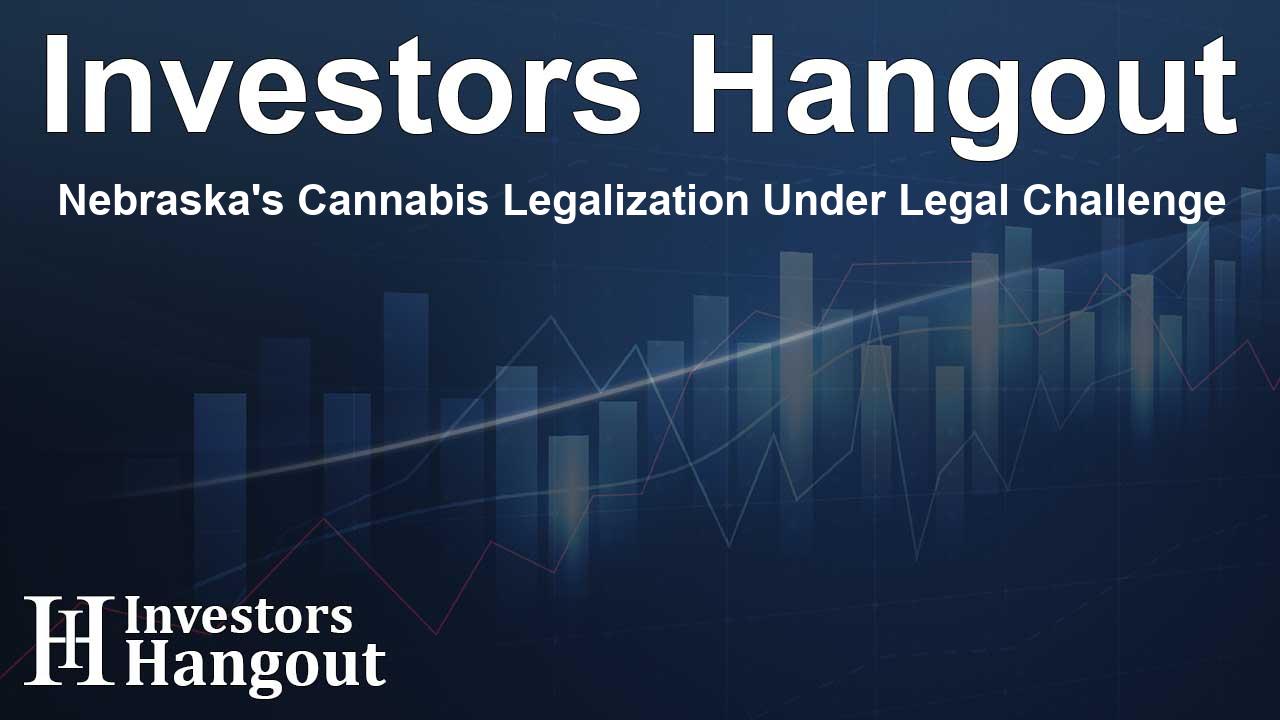Nebraska's Cannabis Legalization Under Legal Challenge

Nebraska's Cannabis Legalization Under Legal Challenge
Recently, Nebraska voters made a significant choice in their electoral process by voting in favor of medical cannabis legalization. However, this monumental decision is now embroiled in a legal battle that could threaten its implementation. Allegations have surfaced, claiming that fraudulent activities concerning petition signatures have jeopardized the very foundation of this initiative.
Overview of Legal Scrutiny
The ensued lawsuit, led by former State Senator John Kuehn alongside the state Attorney General’s Office, centers on accusations of widespread petition fraud. They argue that improper actions invalidated tens of thousands of signatures submitted in support of the medical cannabis measures, putting the legitimacy of the election results at risk.
Filed in Lancaster County District Court, the lawsuit targets key individuals such as the sponsors of the Nebraskans for Medical Marijuana initiative and Secretary of State Bob Evnen, who confirmed the measures were eligible for voting. Despite passing with substantial support—71% for Initiative Measure 437 and 67% for Initiative Measure 438—the determining factors of this legal conflict could potentially undermine these democratic outcomes.
Claims of Widespread Fraud
The claims have escalated to allegations that the petition circulators' actions and notaries significantly compromised the integrity of the election process. According to Assistant Attorney General Dave Lopez, misconduct pervaded the campaign, suggesting serious missteps in both ethical and legal dealings. The statement "Cheating is a choice" indicates the gravity with which the prosecution views these allegations.
Details emerging from court proceedings reveal alarming evidence, including messages from campaign manager Crista Eggers that appeared to encourage volunteers to bypass established rules. While she maintains her comments were misrepresented, the situation took a more serious turn when some paid circulators confessed to falsifying petitions, with one individual, Michael Egbert, even pleading guilty to charges of forgery.
Legal Precedents and Expert Insights
In the ongoing court discussions, state attorneys have referenced a historic case from 1919 in the Nebraska Supreme Court, which allowed for the invalidation of fraudulent circulator signatures. Furthermore, they cited the testimony of forensic document examiner Mark Songer, who presented findings indicating multiple possible instances of forgery among the submitted petitions. However, the defense pushed back, arguing that penalizing all petitions notarized by the implicated individuals could wreak havoc on the integrity of the initiative process as a whole.
Eggers, implicated herself, asserts she never knowingly approved any fraudulent documentation. Meanwhile, another circulator, Jennifer Henning, made accusations of additional impropriety but encountered challenges in her testimony due to her previous convictions for fraud.
Possible Outcomes of the Court Case
The outcome now rests in the hands of District Judge Susan Strong, who must decide whether any of the contested petitions could be rectified or if the election results should be completely annulled. Whatever the ruling, it is anticipated that the Nebraska Supreme Court will ultimately weigh in on this significant issue. As the state prepares to confirm the election results, expected around December, this ongoing legal battle could postpone the measures intended for implementation.
Wider Ramifications of the Legal Challenge
This legal conflict illustrates the polarized climate surrounding cannabis legislation in Nebraska. While some view the potential invalidation of the election results as a threat to public trust in the political system, others argue that maintaining the integrity of democratic initiatives is paramount. Commissioner Ava Callender Concepcion emphasized the necessity for states to continue innovating in areas such as research, despite facing numerous obstacles in reform processes.
Frequently Asked Questions
What are the main allegations against Nebraska's medical cannabis initiative?
The main allegations involve widespread fraud in petition signatures, which some claim could nullify the election outcomes.
Who is leading the legal challenge against the cannabis measures?
Former State Senator John Kuehn and the state Attorney General's Office are spearheading the legal challenges.
What are the potential consequences of the court's ruling?
If the court rules against the measures, it could entirely void the election results and halt the implementation of medical cannabis in Nebraska.
Why do some claim the integrity of the initiative process is at stake?
Concerns arise that if fraudulent behaviors are allowed to undermine the voting results, it could set a detrimental precedent for future initiatives.
What role do state officials play in this legal process?
State officials, including the Secretary of State, are implicated as they certified the measures for the ballot and must address the accusations raised in court.
About Investors Hangout
Investors Hangout is a leading online stock forum for financial discussion and learning, offering a wide range of free tools and resources. It draws in traders of all levels, who exchange market knowledge, investigate trading tactics, and keep an eye on industry developments in real time. Featuring financial articles, stock message boards, quotes, charts, company profiles, and live news updates. Through cooperative learning and a wealth of informational resources, it helps users from novices creating their first portfolios to experts honing their techniques. Join Investors Hangout today: https://investorshangout.com/
Disclaimer: The content of this article is solely for general informational purposes only; it does not represent legal, financial, or investment advice. Investors Hangout does not offer financial advice; the author is not a licensed financial advisor. Consult a qualified advisor before making any financial or investment decisions based on this article. The author's interpretation of publicly available data shapes the opinions presented here; as a result, they should not be taken as advice to purchase, sell, or hold any securities mentioned or any other investments. The author does not guarantee the accuracy, completeness, or timeliness of any material, providing it "as is." Information and market conditions may change; past performance is not indicative of future outcomes. If any of the material offered here is inaccurate, please contact us for corrections.